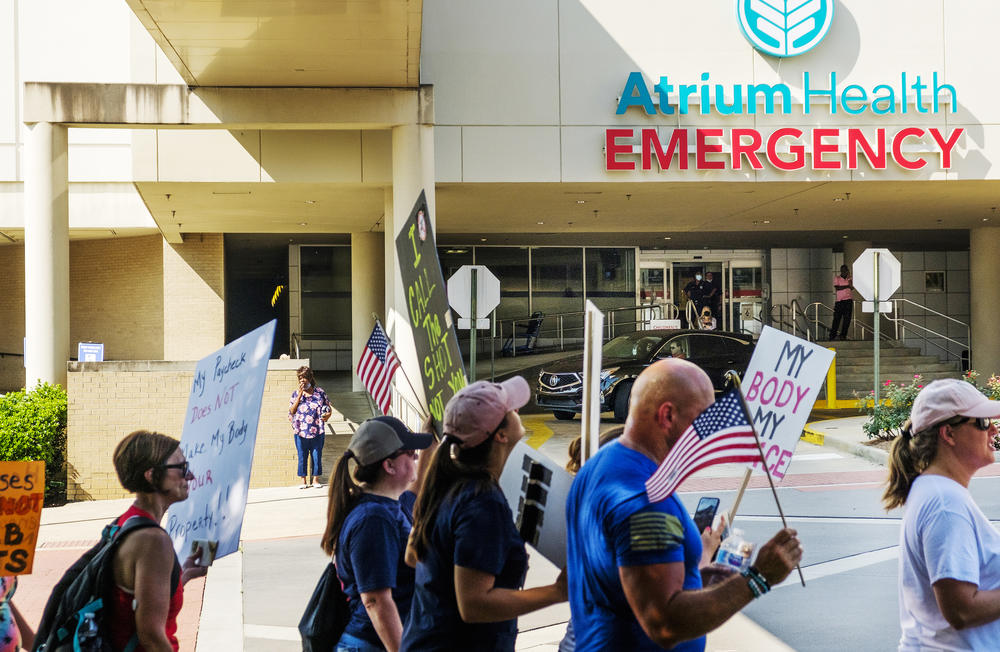
Caption
Protesters against the vaccine mandate for employees of the Medical Center at Atrium Health in Macon march by the hospital emergency room entrance Saturday, Aug. 14, 2021. Only a fraction of the about 100 protesters were employees of the Medical Center.
Credit: Grant Blankenship / GPB News

